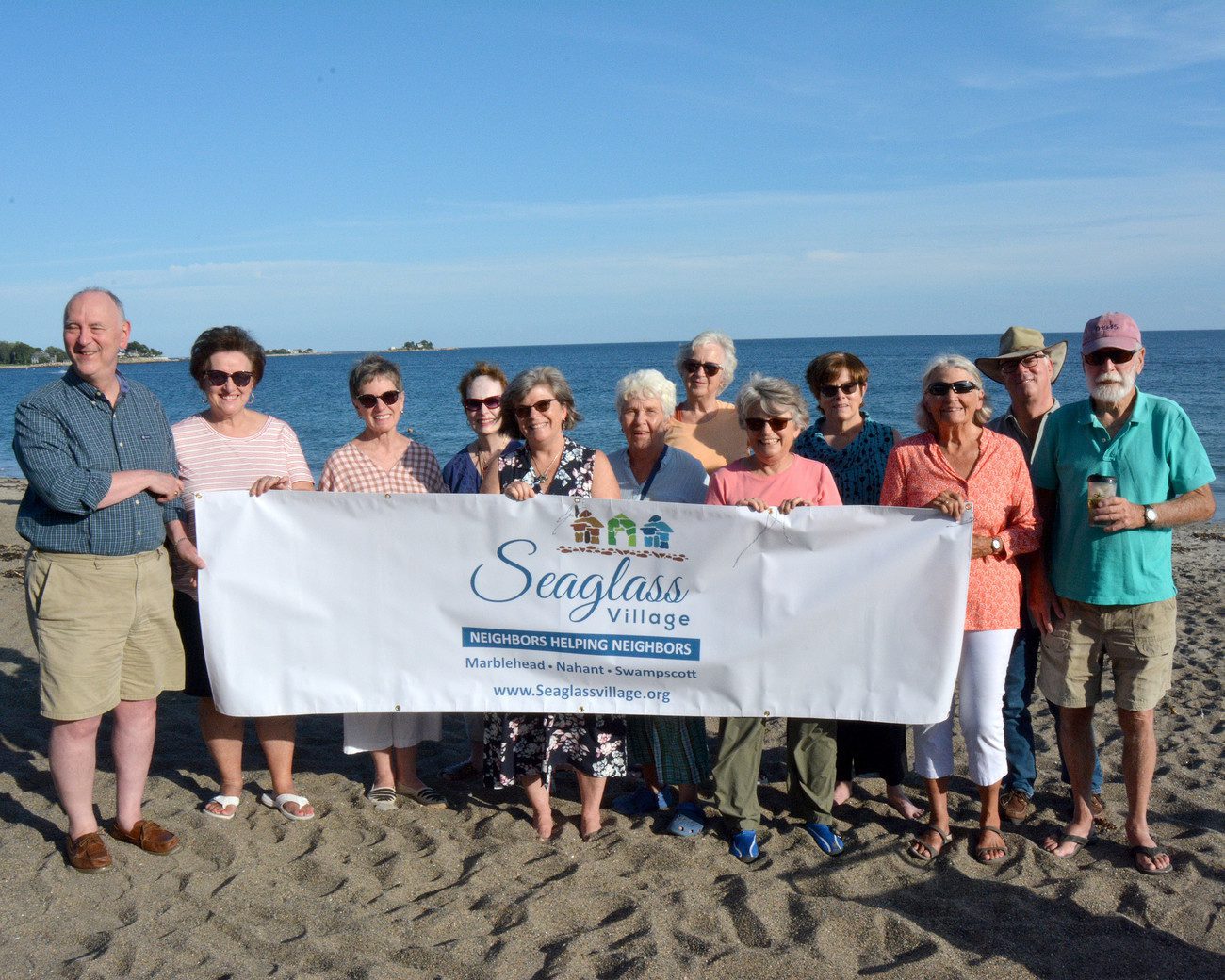SWAMPSCOTT ― Residents have united under Seaglass Village to build a community to keep the town’s seniors safe and connected, whether it be a ride to a hospital in Boston, or helping to screw in light bulbs.
Now, they get to celebrate Seaglass Village with its first official event.
“It’s nice and just to say ‘here we are and we’re finally getting moving.’ We are just so excited to get moving and to launch,” said Swampscott for all Ages Committee Co-Chair Heidi Whear, who is also the president and founder of Seaglass Village.
Seaglass Village, a nonprofit organization that connects elders with volunteers, is holding a grand opening gala at 5:30 p.m. on Oct. 15 on the lawn of the First Church of Swampscott, Congregational. This informal gala will introduce elders to volunteers, as well as celebrate the new director, Alyce Deveau, a librarian of 40 years and the current director of Swampscott Public Library.
“I think that with our aging population growing so significantly, it’s just one more thing we can do for each other to help,” said Whear.
Whear said that so far there are approximately 60 to 70 volunteers, but she would like to see that number grow. Volunteers are checked rigorously, she said, noting that driving records will be checked and each volunteer has to be vaccinated.
Seaglass Village is part of the village movement, where seniors in a community gather together and, with the help of local volunteers, continue to live independently. The village movement also hosts community gatherings, like book clubs or going to museums or the beach. Seaglass Village will serve the communities of Swampscott, Marblehead, and Nahant.
Whear said that Seaglass Village will be a members-oriented organization, meaning that people can sign up to be a member and receive help from volunteers in the community. Right now, it is a $360 yearly fee for an individual member, $540 yearly fee for a membership for a family of two, and $120 yearly fee for just activities and no services.
“The gala will be a time to get to know each other so elders can feel good about asking someone to come over and help,” said Whear. “It’s supposed to create a community and access volunteers who can help (elders) do things they can’t do any longer.”

